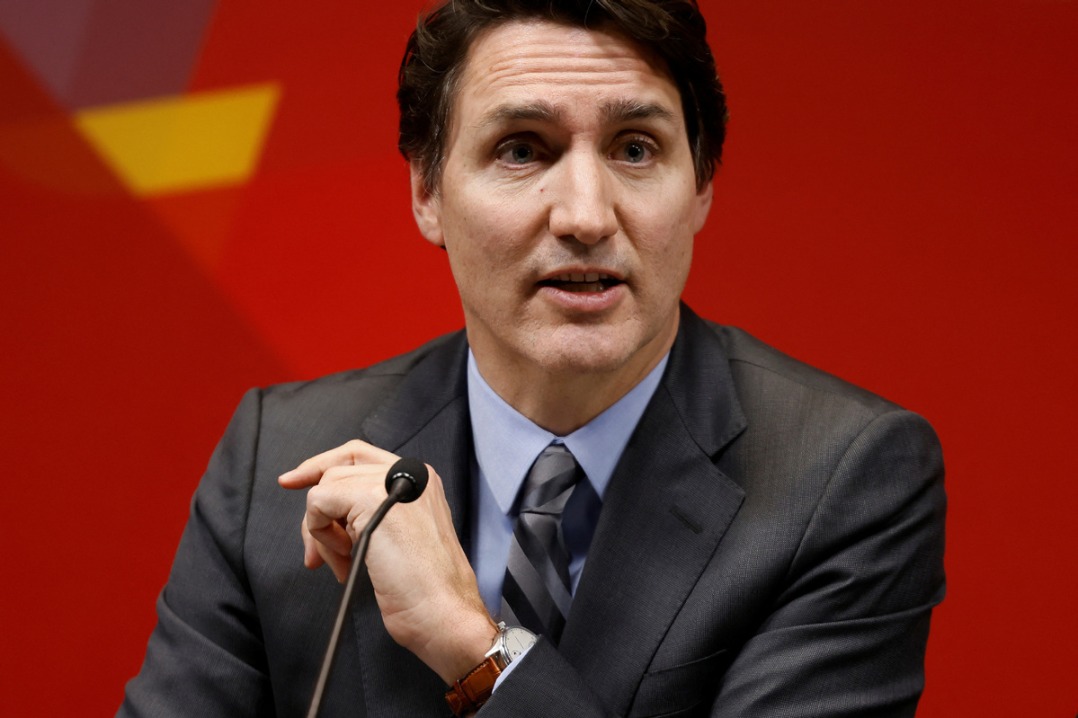China and Thailand share common economic vision


Belt and Road helping to grow trade relations
Government officials and business experts believe substantial development of the Belt and Road Initiative and the Regional Comprehensive Economic Partnership, together with their mutually beneficial goods trade, will enhance business ties between China and Thailand in the next stage.
Before his visit to Beijing to participate in the third Belt and Road Forum for International Cooperation, Thai Prime Minister Srettha Thavisin said the BRI promotes connectivity among participating countries. Thailand looks forward to strengthening cooperation with China in infrastructure, green energy and other areas to enhance the bilateral relationship, he added. A large Thai delegation is to hold a number of meetings with the Chinese on enhancing cooperation in agriculture, trade, investment and other fields during their stay.
With economic cooperation between the Asian neighbors strengthening toward a higher level, experts said their joint efforts will help establish a favorable environment for businesses to expand operations, leading to job creation, generating new growth areas and promoting the green economy.
Given the complex economic and geopolitical situation globally, the two countries, as signatory nations of the RCEP agreement, should further strengthen economic and trade ties to better deal with the economic shockwaves caused by the COVID-19 pandemic and contribute to the world's economic recovery, said Suriyan Vichitlekarn, executive director of the Mekong Institute, an intergovernmental organization run by six governments in the Greater Mekong (China, Thailand, Cambodia, Laos, Myanmar and Vietnam).
"As the two countries make notable progress in big-ticket projects, including the China-Thailand Railway, and a number of manufacturing and energy programs, their business relations will create vitality and stability to ensure stable supply chains across the Asia-Pacific region in the coming years," said Bai Ming, deputy director of international market research at the Beijing-based Chinese Academy of International Trade and Economic Cooperation.
Benefiting from the tangible growth of the BRI and free trade deals, improved regional connectivity projects and their complementary goods trade structure, China-Thailand trade grew by 3 percent year-on-year to $134.99 billion in 2022, data from China's General Administration of Customs showed.
The RCEP, the world's largest free trade deal, covers 10 member states of the Association of Southeast Asian Nations, or ASEAN, and its five free-trade agreement partners: China, Japan, the Republic of Korea, Australia and New Zealand.
Implementation of the agreement will bring tariff cuts to Thai exporters and encourage Chinese manufacturers to ship more goods to Thailand, said Hong Junjie, vice-president of the University of International Business and Economics in Beijing.
China ships mainly computers, telecommunications equipment, trains, trucks, diesel oil, steel, lighting products, medical equipment, textiles and household appliances to Thailand.
In addition to agricultural products, Thailand's exports to China include polymers of ethylene, chemicals, data storage devices, automotive parts, integrated circuits, refined oil and rubber-made medical items, according to customs statistics.
"The economic and financial policies of Thailand will not change in the future. We always welcome investments from all over the world. China, as a large trading partner, is important to us," Jurin Laksanawisit, Thailand's former deputy prime minister, said at a business convention in Bangkok in late June.
Eager to facilitate trade and investment activities, in April, the Bank of Thailand, the country's central bank, was engaged in discussions with the People's Bank of China regarding promotion of yuan-baht settlements as a measure to mitigate foreign exchange risks, particularly amidst the ongoing volatility of the US dollar.
"Southeast Asia is home to significant groups of Chinese companies that have achieved numerous commercial successes and have greatly contributed to regional development through their dedication, talents and professional expertise," said Gao Yunlong, chairperson of the All-China Federation of Industry and Commerce.
He said China and Thailand have a fresh opportunity to strengthen cooperation, particularly as green development emerges as a prominent trend in the region. Thailand, in particular, has outlined a long-term strategy aimed at shifting its economy towards technology and innovation while prioritizing environmentally friendly policies.































